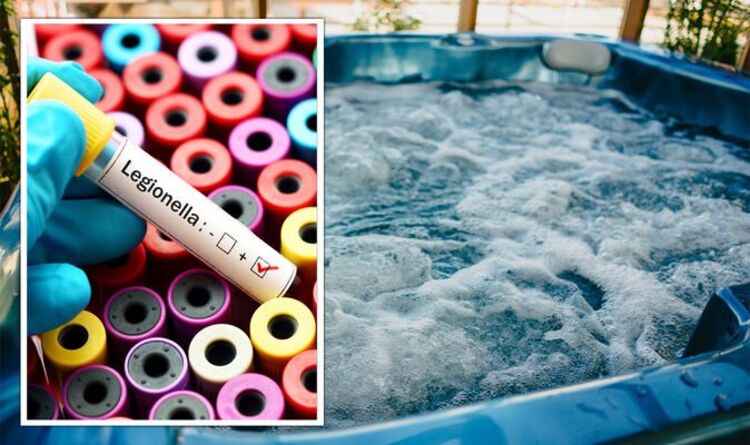‘Small but significant’ risk of Legionella disease to British tourists in holiday hot tubs
The Three Drinkers in Ireland: Travel show teased in trailer
We use your sign-up to provide content in ways you’ve consented to and to improve our understanding of you. This may include adverts from us and 3rd parties based on our understanding. You can unsubscribe at any time. More info
Legionnaires’ disease is a fairly uncommon form of pneumonia, but can carry serious risks. People can catch it by breathing in droplets of contaminated water.
Contaminated water could exist in air conditioning, hot tubs, showers and spas at British holiday homes.
Estimates suggest that around 20 percent of cases of Legionnaires’ disease are related to travel.
Joanna Brine, travel litigation solicitor at JMW Solicitors, said: “Having acted for clients who contracted legionella in recent outbreaks in Spain in 2018 and Turkey in 2019, I have seen the severe illness that can be experienced, and in some cases the long-term effects that can be suffered.”
In 2017, over 20 cases of the disease were recorded in Majorca, one which sadly ended in fatality.

Joanna said: “With the ever-increasing popularity of hot tubs due to their availability and affordability, it’s vital that small holiday accommodation owners realise the potential dangers in order to protect visitors.”
People with weaker immune systems, older travellers or people who smoke are at most risk from the disease.
Hot tubs can be a risk area as bacteria can multiply if they are not properly cleaned and disinfected.
Joanna said: “The risks are small, but significant, so what can you do? Our advice is to ask your accommodation to provide evidence they have maintained and inspected the facilities, including any hot tubs.
“You should also be alert to the symptoms, which include coughing, a high temperature, difficulty breathing, chest pain, confusion, delirium and diarrhoea.
“Bear in mind that people who contract Legionnaires’ disease don’t always show all these symptoms, especially in the early stages of infection, so any of these in isolation could be an indication that you have the disease.
“If you suspect you have contracted Legionnaires’ disease, seek medical advice promptly.
“Certain antibiotics are very effective at treating the disease, but they are most successful if treatment is started early.

“Diagnosing most forms of the disease can be done using a very simple test.”
Hot tubs have become a desirable feature with holidaymakers looking for an Airbnb or holiday home.
During lockdown, there was a surge in Britons buying their own tub or renting one from a supplier.
While tubs can be a great way to unwind on holiday, it’s important to maintain proper cleaning procedures.

Joanna said: “If you have contracted Legionnaires’ disease during a trip away from home, you have legal rights and may be able to seek compensation from the accommodation provider or the tour operator, if you have booked a package holiday.
“I have acted for numerous clients who have contracted legionella during their holidays, and have successfully brought claims against tour operators and foreign insurers of hotels in the English courts to ensure our clients received recompense.”
Although the risk of contracting Legionnaires’ disease is low, British tourists should be careful in rented hot tubs.
They should contact their doctor if they think they might have contracted the disease.
Source: Read Full Article



